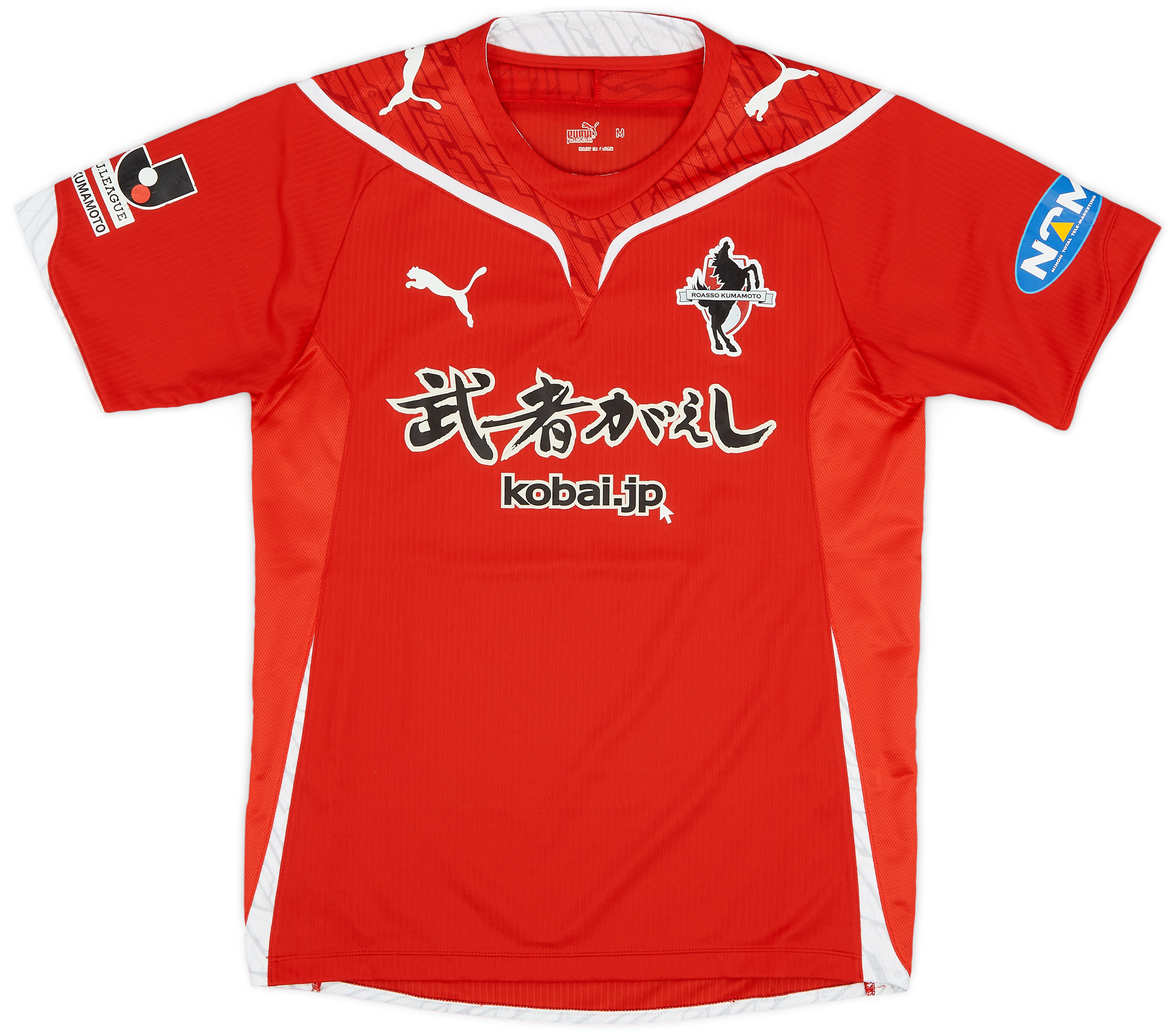Roasso Kumamoto
Introduction Roasso Kumamoto, a vibrant football club based in Kumamoto Prefecture, Japan, is steeped in the rich culture of Japanese football. Established in 2003, this club has transcended beyond mere competition; it embodies the dreams and unity of its community. Named after the “Roasso,” the Japanese term for “giraffe,” the club’s mascot represents the graceful […]
2009 Roasso Kumamoto Home Shirt - 8/10 - (M)
94.99£ - ca: €112
Introduction
Roasso Kumamoto, a vibrant football club based in Kumamoto Prefecture, Japan, is steeped in the rich culture of Japanese football. Established in 2003, this club has transcended beyond mere competition; it embodies the dreams and unity of its community. Named after the “Roasso,” the Japanese term for “giraffe,” the club’s mascot represents the graceful ambition of rising higher in the world of football. With a dedicated following and a commitment to local development, Roasso Kumamoto has carved its niche in the ever-competitive landscape of Japanese soccer.
Club History
Roasso Kumamoto was founded in 2003, originally as “Kumamoto Football Club,” and aimed at being a local powerhouse in the J-League, Japan’s top professional football league. The club began its journey in the Japan Football League (JFL) and quickly established itself as a competitor. In 2006, Roasso Kumamoto earned promotion to the J2 League after a commendable season, marking a significant milestone in its history. The team played its first J2 League match on March 12, 2006, against Sanfrecce Hiroshima, generating excitement among fans. While the journey has included challenges and relegations, the club has steadily shown resilience and ambition, aiming for promotion to the top tier of Japanese football.
Achievements
Roasso Kumamoto’s achievements reflect its competitive spirit in the realm of Japanese football. The club’s most notable accomplishment came in 2014 when they finished as runners-up in the J2 League, a result that showcased their potential and talent. This performance briefly elevated their profile, earning them the attention of fans and football pundits alike. Additionally, the club reached the third round of the Emperor’s Cup in 2007, further solidifying their status as a formidable force in Japanese football. Throughout its history, Roasso has nurtured local talent and has been a key player in promoting football culture in Kumamoto, evident through its youth academy.
Significant Players and Matches
Roasso Kumamoto has been home to several notable players who have left their mark on the club’s history. Among these was the talented forward, Tatsuya Tanaka, who became famous for his skillful play and goal-scoring abilities during his time with the club. His time at Roasso contributed to memorable matches, including the thrilling 4-3 victory against FC Gifu in 2016, where Tanaka scored twice to secure a comeback win. Another significant player was goalkeeper Kaito Kuroda, who stood out for his remarkable saves in crucial matches, playing an essential role in the team’s defense. These players, along with many others, have contributed to the club’s achievements and have become beloved figures among fans.
Cultural Impact
Roasso Kumamoto has had a profound influence on the local culture. The club actively engages with the community through various initiatives, promoting football at the grassroots level. It runs programs in schools and organizes neighborhood events that encourage youth participation in the sport. The passionate fan base, known as the “Roasso Army,” creates a vibrant atmosphere during home matches at the Kumamoto Prefectural Suizenji Stadium. Fans are not only there to support their team but also to uphold local traditions and celebrate their identity through football. This connection between the club and its community fosters a sense of pride, making Roasso Kumamoto a symbol of unity and resilience in the region.
Conclusion
In summary, Roasso Kumamoto embodies the spirit of Japanese football through its commitment to competition, community, and culture. From its humble beginnings to its significant achievements in the J2 League, the club’s journey reflects the hopes and dreams of its local supporters. With a dedication to nurturing talent and a passion for engaging with fans, Roasso Kumamoto continues to shape the football landscape in Japan. As they aspire for success in the coming years, the legacy of Roasso Kumamoto remains a vital part of Kumamoto’s identity and the broader narrative of football history in Japan.
